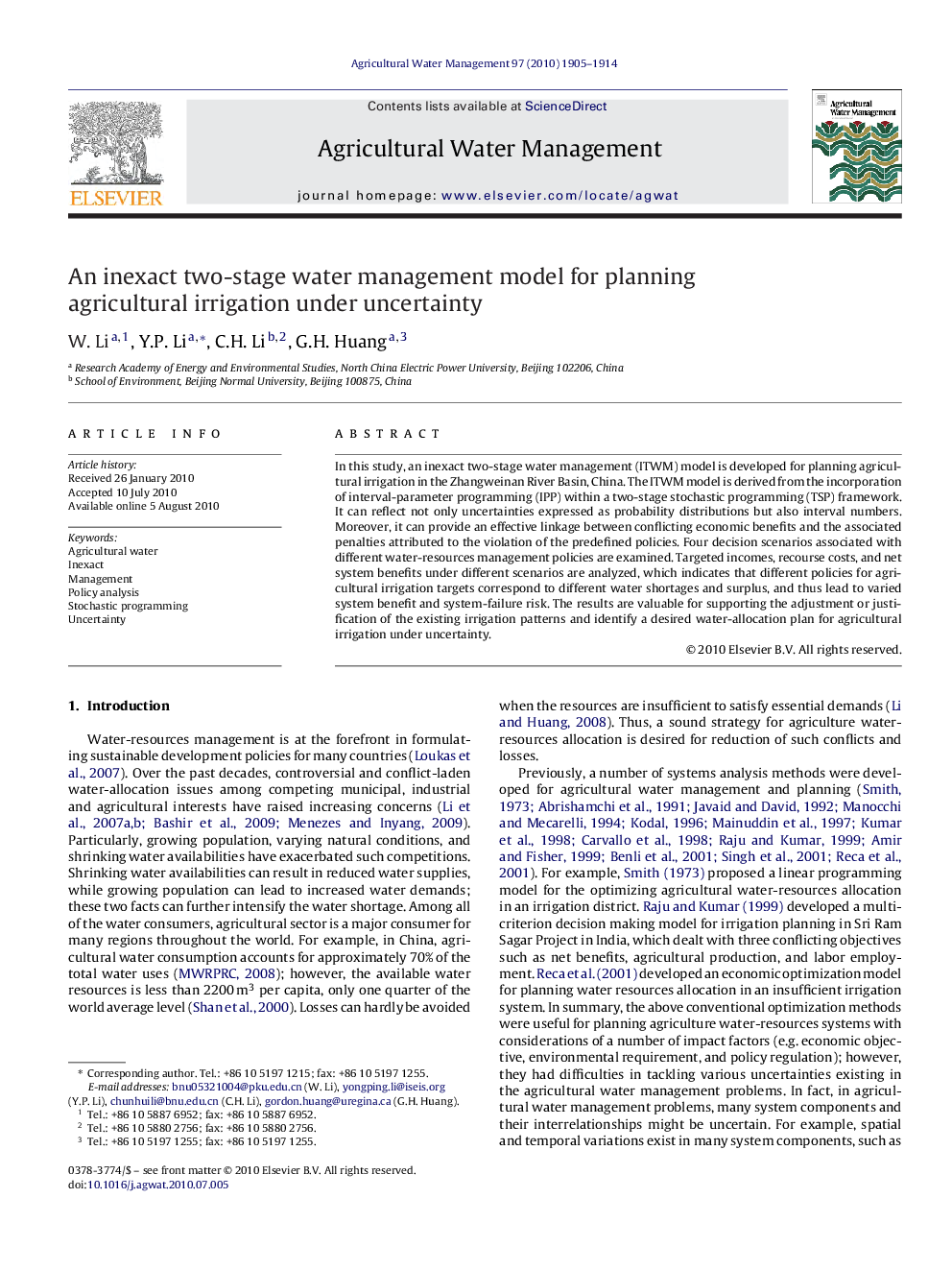| Article ID | Journal | Published Year | Pages | File Type |
|---|---|---|---|---|
| 4479696 | Agricultural Water Management | 2010 | 10 Pages |
In this study, an inexact two-stage water management (ITWM) model is developed for planning agricultural irrigation in the Zhangweinan River Basin, China. The ITWM model is derived from the incorporation of interval-parameter programming (IPP) within a two-stage stochastic programming (TSP) framework. It can reflect not only uncertainties expressed as probability distributions but also interval numbers. Moreover, it can provide an effective linkage between conflicting economic benefits and the associated penalties attributed to the violation of the predefined policies. Four decision scenarios associated with different water-resources management policies are examined. Targeted incomes, recourse costs, and net system benefits under different scenarios are analyzed, which indicates that different policies for agricultural irrigation targets correspond to different water shortages and surplus, and thus lead to varied system benefit and system-failure risk. The results are valuable for supporting the adjustment or justification of the existing irrigation patterns and identify a desired water-allocation plan for agricultural irrigation under uncertainty.
